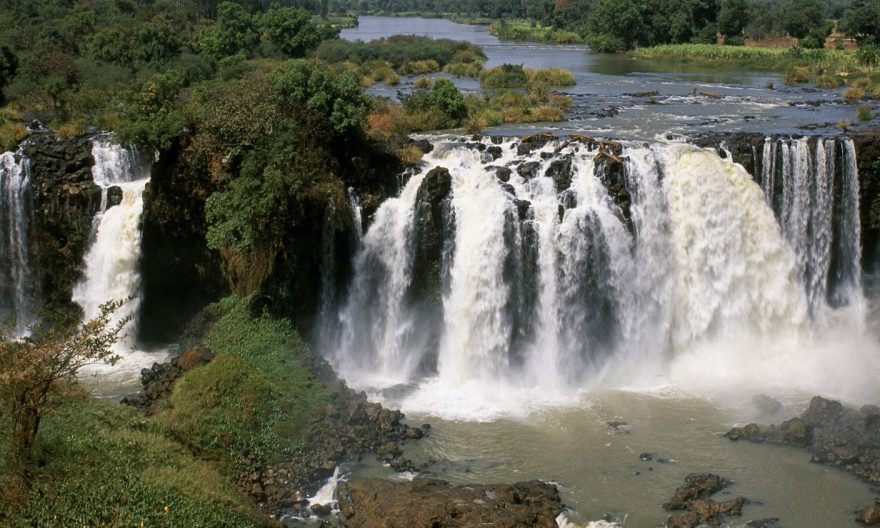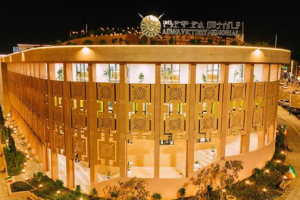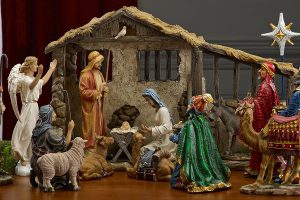
BY MULUGETA GUDETA
Ethiopia and her major river the Nile have attracted the attention of great ancient epic poets, historians and travel writers. No wonder then that Herodotus who is considered the father of history has mentioned Ethiopia in many of his writings of this part of the world as well as his observations on the source of the Nile and related issues. Why Ethiopia and the Nile continue to attract the attention of the world as we write these lines is rather obvious.
Ethiopia is a strategically key country in a very unstable geopolitical entity contested by regional, global and national forces for hegemony or control. The Nile’s importance has not diminished in the 20th century as it became the focus of colonial powers as well as modern global players who dreamt of controlling the river basin if not its source in the ongoing global game for economic and political domination.
The Nile in its long history of existence has always been shrouded in mysteries, mystic if not mythology. One can perhaps divide the mythology about the Nile into two parts as old mythologies and their new variants. The old mythologies are literary in nature and were developed by some of the most famous epic writers in the ancient literary worlds of the Greeks, the Romans and later on the Egyptians who have now turned themselves into modern political myth-makers about the Nile. Their arguments however radically depart from the old mythologies.
Like any big river in the world, the Nile has its history, as well as old and new mythology embedded in ancient Greek, Egyptian or Roman classical literatures. The Greek name for the Nile is Neilos. According to Greek mythology Neilos is the God of the river Nile in Egypt. The ancient Roman poet Ovid is quoted in his epic poem entitled Metamorphosis, (a Roman epic of 1st B.C. to 1st A.D.),as saying that “In the court of Kepheus (Cepheus), king of Aitiopia (Ethiopia) was a man named Nileus who falsely claimed descent from sevenfold Nileus and bore a shield embossed in gold and silver with those seven streams.”
Aeschelus, in his work entitled Anonymous, on the Swelling of the Nile, a Greek tragedy of the 5th century B.C. wrote that “Knowing full well, I can laud the race of the Aithopian (Ethiopian) land, where seven-channeled Neilos (the Nile) rolls his refreshing tide. Fed by abundant wind-born rain, and the fire-eyed sun beaming forth upon the earth, melts the snow and the rocks, and all luxuriant Aigyptos (Egypt), filled with the sacred flood makes to spring up Demeter’s life-giving grain.”
The above lines were written more than 1500 years ago and stood as testimony that the Nile is a river whose origin is located in Ethiopia. This is in stark contrast to the modern mythology that originated in 20th century Egypt and says that the Nile is an Egyptian river whose exclusive right of use belongs to the Egyptians. The argument that the Egyptian authorities would not allow even “a drop of water from the Nile” to be used by another country, i.e. Ethiopia, has also its origin in this same mythology that found expression in modern Egypt whose leaders did not care about the testimonials by Ovid or Aeschelus, two of the most celebrated poets and dramatists of epic literature.
In old mythology, Neilos is known as the God of the river Nile and many classical writers have shared their thoughts about the mythic river. Herodotus, the Greek historian who is considered the father of history who lived in the 5th century B.C. was quoted as saying the following lines On the Source of the River Nile. According to him, the river Nile effects what it does because it flows from Okeanos (Oceanus), which flows around the world.
The modern myth-makers turned this argument in such a way as to deny the true source of the Nile as some diplomats with poor knowledge of the source of the river or deliberately distort it to mean that “the Nile is the river of the Arab world” whose interests coincide with those of the Egyptians in order to deny Ethiopia’s rightful claim as the main source of the river with more than 80 percent of its water coming from Ethiopia. First thing, the Nile cannot be an Arab river because diplomatically many Arab countries naturally side Egypt in its dispute with other riparian states. No amount of lies and diplomatic twists and turns can make the Nile a river whose present status or future fate is determined or decided by Africans alone.
A certain Greek travel writer who lived in the 2nd A.D. named Pausanias was the victim of another lie when he wrote that, “Except for the Egyptian Neilos (Egyptian Nile) the river all have white stone statues, but people believe that you should make statues of Neilos with dark stone, because he flaws down to the sea through Aithopia (Ethiopia).” The first fallacy is that the Nile has never been an “Egyptian river. The second is that the Nile has never flowed down to the sea through Ethiopia.” It always flowed from Ethiopia down to the other riparian countries, including Egypt and then to the sea.
A man named Philostratus the Elder, who was also a rhetorician or an expert in the art of speaking and lived in the 3rd century A.D. wrote the following: “Ostensibly, a description of an ancient Greek painting at Neapolis (Naples) about Neilos (the Nile) the Dwarfs are sporting children no taller than their name implies and Neilos (the Nile), delights in them for many reasons but particularly because they herald their coming in great floods for Egyptians.” This is obviously a true description of the Nile than the argument we quoted above because it at least indirectly admits the fact that the Nile flows from Ethiopian down to Egypt, bringing in great floods.
The modern myth-makers are standing in opposition to this because their main argument for opposing the construction of the GERD is based on the fallacious opinion that the Nile will diminish the flow of water to their country, a fact refuted long ago by Greek epic writers as the quotation above demonstrates. Scientific evidence also comes out in support of the anti-GERD politicians whose assumptions are based on old realities and not on new facts.
As we briefly saw above, some of the arguments of the modern political and diplomatic myth-makers are largely based on wrong assumptions about the Nile or distortions of old mythology which may by the product of literary imagination but is based on historical facts as the quotations from such eminent historians as Herodotus prove. However, the modern myth-makers turn these fact-based literary observations either as lies or distort them to suit their diplomatic or political positions regarding the Nile.
Although they do not openly argue in denial of the fact that the Nile’s origin is found in Ethiopia, they think and act as if the Nile is “their” river. When they evoke the old colonial treaties between Britain and Egypt which was signed during the colonial era and gave them the exclusive right to use the Nile for their benefits, it all amounts to denying Ethiopia’s right to the same as if Ethiopia is not the main origin or source of the river.
The position of the modern diplomatic myth-makers has evolved over time without abandoning its basically fallacious argument. When the myth-makers oppose the construction of the GERD, they say the dam would stop the flow of the waters of the river while scientific facts suggest the contrary. The construction of the GERD would rather properly regulate the flow of the waters of the river to downstream countries and curb possible floods during heavy rains by releasing only the necessary amount of water. Moreover, the construction of dams, canals and other waterworks along the course of the Nile in Egypt have radically changed the old situation whereby floods inundated Egypt as described by the ancient writers we quoted above.
The proper attitude the modern myth-makers should espouse includes the following facts. Ethiopia has no intention to turn its natural resources such as the Nile to the detriment of other riparian states, including Egypt. The construction of the GERD is a win-win solution not only to Ethiopia and Egypt but to all the downstream riparian states whose survival depends on the proper management and utilization of the waters of the Nile. Last but not least, those who oppose the GERD should understand that it is the inalienable right of Ethiopia to make use of its natural resources without however disregarding the interests of all the downstream riparian states.
The Greek and Roman epic writers invented gods representing all the big rivers of the world. The time has now come for riparian states to use their imaginations for inventing the gods of cooperation, solidarity and mutual development that will guide the future of many generations to come. They cannot prosper on myths or mythologies but on the realities of the modern world.
THE ETHIOPIAN HERALD JULY 2 /2021





